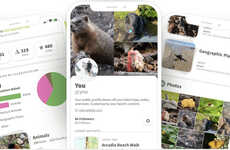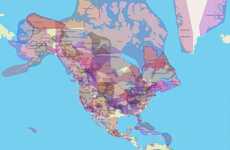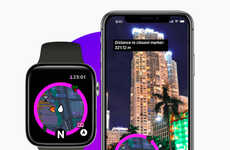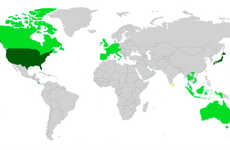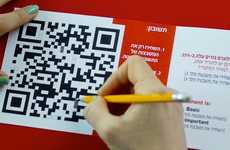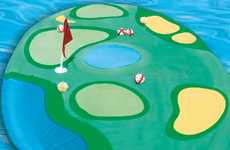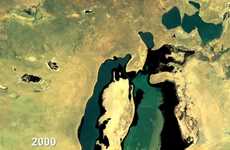
Nukemap Displays the Potential Damage of Nuclear Weapons on Major Cities
Rebecca Byers — February 24, 2012 — Tech
References: nuclearsecrecy & io9
Nukemap was designed by Alex Wellerstein and is an application based on Google Maps that simulates the effects of a nuclear bomb on the major city or historical site of your choosing. The website also lets you select the yield of the bomb by either entering it in kilotons or by selecting one from the preset list, which includes all nuclear bombs designed or tested to date.
Alex Wellerstein is a science historian, which is apparent by the accuracy and detail of the website. From the center where the bomb is detonated, there are five circles that denote the fireball radius, radiation radius, air blast radius and thermal radiation radius. The slightly morbid application is an interesting look at the realistic threat of an atomic bomb, as even the outer most circle from the detonation point is susceptible to third-degree burns to all exposed skin.
Alex Wellerstein is a science historian, which is apparent by the accuracy and detail of the website. From the center where the bomb is detonated, there are five circles that denote the fireball radius, radiation radius, air blast radius and thermal radiation radius. The slightly morbid application is an interesting look at the realistic threat of an atomic bomb, as even the outer most circle from the detonation point is susceptible to third-degree burns to all exposed skin.
Trend Themes
1. Nuclear Threat Awareness - Creating applications or tools that educate and raise awareness about the potential damage and effects of nuclear weapons on cities.
2. Simulation Technology - Developing advanced simulation technologies that accurately model the impact and aftermath of catastrophic events, such as nuclear bomb detonations.
3. Historical Site Preservation - Using mapping applications and data visualization tools to showcase the vulnerability of historical sites to potential damage from nuclear weapons.
Industry Implications
1. Education Technology - Opportunity for educational technology companies to create interactive tools and resources that enhance understanding of nuclear threats and their effects.
2. Software Development - Potential for software developers to build innovative simulation technologies that assist in disaster planning and response for various scenarios, including nuclear bombings.
3. Heritage and Tourism - Application of mapping and visualization tools to drive awareness and preservation efforts for historical sites that are vulnerable to nuclear attacks.
3.6
Score
Popularity
Activity
Freshness

